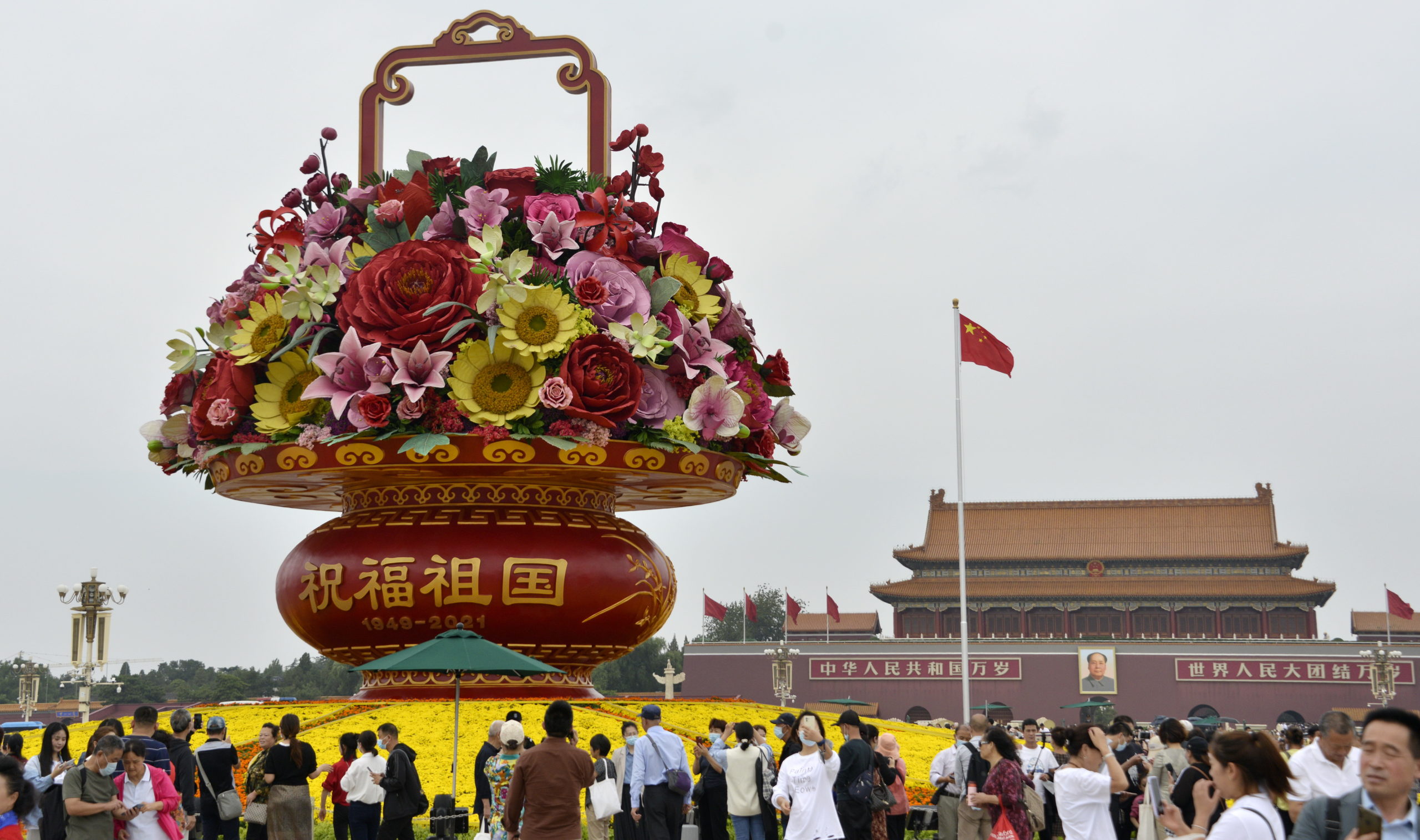A historic plenum — and what it means for U.S.-China relations
Each Central Committee of China’s Communist Party holds seven plenary sessions over its five-year term, with the sixth plenum of any given Central Committee usually focusing on ideology and party-building. The meeting this year will be no different, but is notable for a resolution on Party history.

The sixth plenary session of the Chinese Communist Party’s 19th Central Committee kicks off today at a pivotal moment in U.S.-China relations. Amid heightened tensions around Taiwan and heated exchanges on a number of issues, and ahead of a highly anticipated virtual summit between Chinese and American presidents Xí Jìnpíng 习近平 and Joe Biden, the event will be an important opportunity for China to signal its intentions.
On top of that, the plenum will hold special significance for China’s domestic politics, and will help observers hoping to understand Xi’s relative strength within the party.
Each Central Committee of China’s Communist Party holds seven plenary sessions over its five-year term, with the sixth plenum of any given Central Committee usually focusing on ideology and party-building. This meeting will be no different, but is notable in that, for only the third time, the plenum is expected to pass a resolution on Party history.
This historical resolution comes on the 40th anniversary of Dèng Xiǎopíng’s 邓小平 1981 “Historical Resolution on Certain Questions in Party History Since the Founding of the PRC,” which itself followed up on a 1945 resolution of a similar name under Máo Zédōng 毛泽东. Both Deng and Mao had similar motives in pushing through their respective resolutions: Mao aimed to condemn the past mistakes of political rivals and consolidate his power, while Deng similarly had to explain why certain Maoist policies had been problematic in order to justify his own market reforms and opening up of the country to trade and investment.
But, as others have pointed out, the name of the recently proposed resolution under Xi Jinping strikes a more optimistic tone than its predecessors. Xi’s resolution on “important achievements and historical experiences of the party’s 100 years of struggle” is unlikely to focus on anyone’s past mistakes. Rather, the document is expected to celebrate the achievements of the Chinese Communist Party and strengthen the party’s confidence going forward.
The historical resolution will also help Xi consolidate his own power within the party. This won’t be the first time Xi has used a sixth plenum to elevate himself above his predecessors. The official communique that emerged from 2016’s sixth plenum was the first official Party document to refer to Xi as the “core” of the leadership, a term that had previously only been used to describe Mao, Deng, and Jiāng Zémín 江泽民 — and notably not Xi’s direct predecessor, Hú Jǐntāo 胡锦涛.
For Xi personally, the resolution will also set the stage for next year’s 20th Party Congress, where he is all but certain to assume a third term as China’s president. This will buck the precedent established by his two predecessors, Jiang Zemin and Hu Jintao, who had both adhered to a constitutional limit of two five-year terms. China’s National People’s Congress, in a nearly unanimous vote, elected to abolish the term limits in 2018. Although Xi has been remarkably successful in consolidating power during his tenure, there are still those in the Party elite who wonder whether term limits for the office of the president should still be in place. This historical resolution gives Xi yet another opportunity to raise himself to the status of Mao and Deng, and project strength toward any internal rivals and skeptics.
The plenum will have a significant effect on China’s relations with the United States. At the current moment, It’s difficult to ignore the stark juxtaposition between Xi’s Communist Party (and his strong position in it) and Joe Biden’s struggling American Democratic Party and his flagging domestic approval ratings. After a GOP election sweep in Virginia’s recent elections, and a closer-than-expected call for Democrats in the New Jersey gubernatorial election, the Democratic Party has reason to worry about the upcoming 2022 midterms.
Biden and the Democrats would be well-served to finally push through the passage of the nearly-two-trillion-dollar reconciliation legislation that encompasses much of the president’s agenda. This would put Democrats on much more sure footing domestically, but it would also help strengthen Biden’s hand in his upcoming meeting with Xi. With regard to the coming meeting, U.S. Foreign Service veteran Chas Freeman told Politico’s China Watcher, “If it’s a question of who is approaching who from a position of strength, maybe Xi is in a better position.”
At the same time, the stakes of Xi and Biden’s upcoming meeting are not as high as they might be. Any major breakthrough seems unlikely for the meeting, and easing up on visa restrictions and reopening of closed consulates appear to be the most substantive items on the agenda. The meeting could also serve as something of a reset to the relationship, which has been marked by harsh rhetoric and unusually high tension around Taiwan in recent weeks.
Taking a broader view of the relationship, the new historical resolution will serve to reaffirm China’s growing international prominence. It will provide the party an opportunity to highlight and celebrate its decades-long economic growth, its increasingly assertive diplomatic posture, and its growing military ambitions. In the wake of the recently released China Military Power Report from the U.S. Department of Defense, this kind of rhetoric may cause American officials to further sound the alarm over China’s global ambitions.
Finally, the plenum and resolution will signal Xi’s desire for full control of China. This will represent just one more example of his authoritarian cult of personality, which will color the perceptions of American officials and the broader American public. At least in the minds of many Americans, it could serve to reinforce a sense of an increasingly irreconcilable ideological rift between the two societies.

